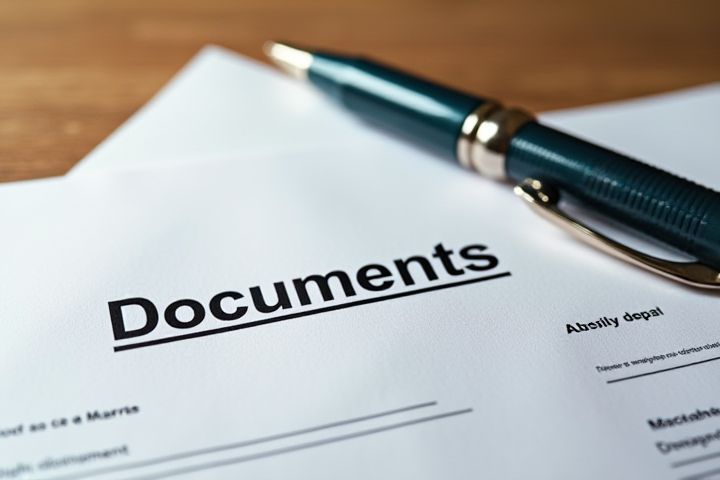
To buy a house, you typically need several important documents to complete the process smoothly. First, ensure you have proof of identity, such as a government-issued photo ID, along with your Social Security number for verification purposes. It's essential to provide financial documentation, including recent pay stubs, tax returns, and bank statements to establish your financial capacity. Additionally, a pre-approval letter from a mortgage lender will demonstrate your readiness to commit to the purchase. Finally, if applicable, gather any legal documents related to the sale, including the purchase agreement and disclosures about the property condition, to ensure a thorough review and understanding of your new home.
What Documents Are Needed To Buy A House
Identification (ID or Passport)
To successfully purchase a house, you'll need to provide valid identification, such as a government-issued ID or passport, to verify your identity. This document plays a crucial role in the home buying process by ensuring that all parties involved can confirm your identity, reduce the risk of fraud, and comply with legal requirements. It's essential to have multiple copies of your ID or passport on hand when submitting paperwork to lenders and real estate agents. Ensuring that your identification is current and matches the name on other documents can help streamline the transaction and prevent potential delays.
Proof of Income
To buy a house, providing proof of income is essential for securing a mortgage. Common documents include recent pay stubs, typically covering the last 30 days, along with W-2 forms from the previous two years. Self-employed buyers should present tax returns for the past two years and a profit and loss statement from the current year. If you receive additional income from bonuses or rental properties, including documentation for these sources will strengthen your application.
Credit Report
A credit report is a crucial document when buying a house, as it provides lenders with an overview of your creditworthiness. This report details your credit history, including outstanding debts, payment history, and credit utilization, all of which influence the mortgage interest rates you may receive. Lenders typically require a credit score of 620 or higher for conventional mortgages, but programs may accept lower scores depending on additional factors. Ensuring your credit report is error-free and up-to-date can significantly enhance your chances of securing favorable financing options while navigating the home-buying process.
Asset Statements
Asset statements are crucial documents when purchasing a house, as they provide lenders with a clear picture of your financial stability. Typically, you'll need to present recent bank statements, investment account statements, and retirement account documentation, showcasing your available funds for a down payment and closing costs. These asset statements should ideally cover the last 60 to 90 days, ensuring they reflect your current financial situation. Having organized and transparent asset statements increases your credibility as a buyer, potentially leading to better mortgage terms.
Purchase Agreement
The Purchase Agreement is a crucial legal document in the home-buying process, detailing the terms and conditions of the sale. Typically, it includes essential information such as the purchase price, deposit amount, and contingencies related to inspections or financing. In addition to the Purchase Agreement, you will also need proof of identity, such as a driver's license or passport, and financial documentation, including pre-approval letters from lenders. To successfully finalize your home purchase, ensure all parties involved review and sign the Purchase Agreement to create a binding contract.
Mortgage Pre-approval Letter
A Mortgage Pre-approval Letter is essential when buying a house, as it demonstrates your financial capability to sellers. This letter typically requires documentation such as proof of income, recent pay stubs, bank statements, and tax returns for at least the past two years. Lenders will also evaluate your credit score to assess your creditworthiness, impacting the loan amount you may qualify for. Having this pre-approval in hand can simplify the home-buying process and strengthen your position in negotiations.
Property Deed
To purchase a house, one essential document is the Property Deed, which legally transfers ownership from the seller to the buyer. This document must clearly define the property boundaries and include the legal description, ensuring all details align with public records. Alongside the Property Deed, you will typically need a mortgage agreement if financing the purchase, proof of insurance, and a title report verifying that the property is free of liens. Gathering these documents is crucial, as failing to provide them may delay or even derail your homebuying process.
Home Inspection Report
The Home Inspection Report is a critical document when buying a house, providing insights into the condition of the property. Typically, this report includes information on potential structural issues, plumbing, electrical systems, and the roofing condition, helping you assess the home's overall integrity. It is advisable to review this report thoroughly, as it may highlight necessary repairs or upgrades, influencing your negotiation strategy and final purchase decision. Keep in mind that lenders may also request this document during the financing process to ensure the property meets their standards.
Property Tax Statements
When purchasing a house, one crucial document is the Property Tax Statement, which provides insight into the annual taxes due on the property. This statement details current tax assessments and any outstanding amounts, ensuring you understand your financial obligations post-purchase. Additionally, it can reveal past tax records, offering a historical context that may influence your decision. Being informed about the property's tax history can help you estimate ongoing costs and budget effectively for homeownership.
Insurance Documents
When purchasing a house, it's essential to prepare specific insurance documents to secure your investment. A homeowners insurance policy is crucial, typically covering property damage and liability protection, which lenders often require before closing the sale. You'll also need a flood insurance policy if your new property is located in a high-risk flood zone, as this may be mandated by lenders to safeguard against natural disasters. Lastly, having proof of title insurance can protect you against any potential disputes over property ownership, ensuring peace of mind as you finalize your home purchase.
